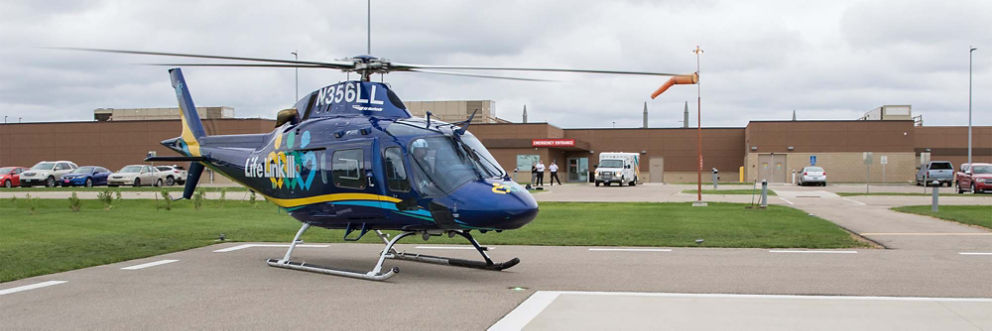Emergency Center
Trusted emergency care in Olivia
Emergencies don’t follow a 9-to-5 schedule. Our emergency department provides 24-hour emergency and trauma care for people of all ages.
As a Level IV Trauma Center, certified Acute Stroke Ready Hospital, and a Level I Heart Attack Center, Olivia Hospital’s Emergency Center is prepared to handle a painful fall, unexplained chest pains and everything in between.
All emergency room staff members have specialized training to assess trauma, heart attack and stroke symptoms, and to administer lifesaving treatment. Telemedicine services with a dedicated neurologist are now available 24/7 for stroke patients, providing access to expert care fast. When advanced care is needed, we strive to get patients to specialized facilities within 60 to 90 minutes.
Rest assured – when the unexpected happens, we’re always here when you need us.
Call 911 if you need emergency assistance.
Emergency room services
We provide comprehensive options to treat your illness or injury. Our services include:
- Asthma and respiratory care
- Concussions and traumatic brain injury diagnosis and treatment
- CT scans, MRIs, ultrasounds and X-rays
- Heart attack and cardiovascular disease treatment
- Mental health care
- Pediatric care
- Stroke care
- Trauma care
- Treatment for broken bones, dislocations, sprains and fractures
- Treatment for wounds, lacerations and burns
Level I Heart Attack Program
Olivia Hospital is a designated Level I Heart Attack Center. In the emergency room, our Heart Attack Program Team will:
- Complete needed tests
- Monitor heart attack symptoms
- Administer medications (such as pain medication or clot busting drugs)
- Arrange for air transportation to a heart care hospital if advanced care is needed – our goal is to have you to a specialty heart care service within 60 minutes of coming to our Emergency Center
Expert stroke care
We are a certified Acute Stroke Ready Hospital, meaning we have the expertise and specialized training needed to provide fast-acting stroke care.
We also have telestroke capabilities through CentraCare. Telestroke can virtually bring a stroke specialist into the hospital’s emergency center 24 hours a day. This allows patients to connect in real time with a stroke and vascular neurologist, speeding treatment decisions and improving health outcomes.
Is it a medical emergency?
Although we examine all patients who come to the ER for a medical concern, whether it’s major or minor, some common symptoms that could signal a serious medical emergency include:
- Chest pain
- Difficulty breathing
- Stroke symptoms, such as slurred speech, severe headaches or weakness on one side of the body
- Severe pain
- Loss of consciousness
- Excessive bleeding
- Cuts or large abrasions
- Possible broken bones
- Any condition that you feel needs immediate medical attention
Calling 911 is almost always the fastest way to get lifesaving treatment.
What to bring
Bringing the following items can make your visit to the emergency room go smoother:
- A complete list of your current medications
- Health insurance cards
- A driver’s license or ID card
- A trusted friend or family member
